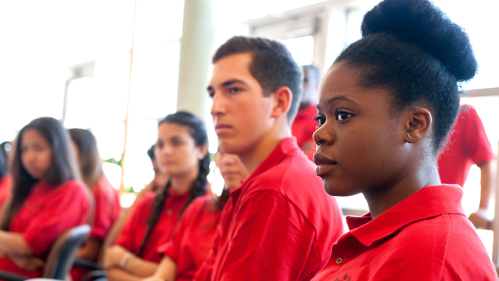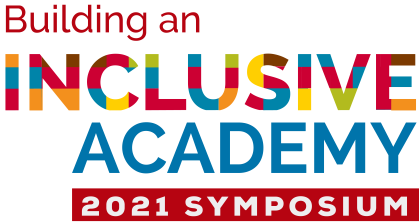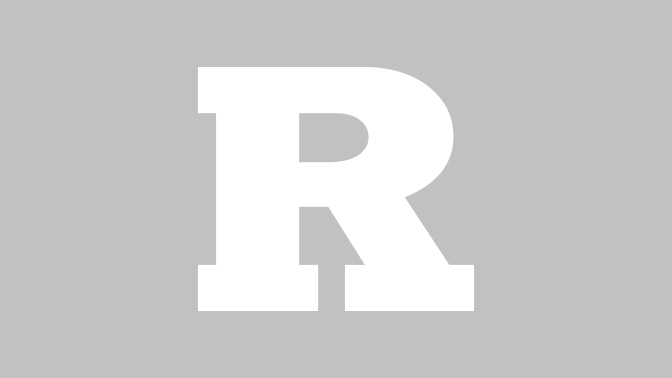Building an Inclusive Community

Virtual symposium on equity and inclusion to explore challenges facing higher education
Rutgers is a diverse institution, reflecting the makeup of the communities around it in one of the most diverse states in the country.
But compositional diversity is not enough. Are we intentional? Are we addressing inequities in who is represented and who is successful here? While students, faculty and staff are here, what is their experience? Have we cultivated a sense of belonging? Do we offer respect for differences in words and actions?
These are the questions we need to explore to create a beloved community, said Enobong (Anna) Branch, senior vice president for equity. Branch, whose office hosts Building an Inclusive Academy Symposium on Friday, Jan. 29 from 10 a.m. to 12:30 p.m., talked to Rutgers Today about the importance of finding the answers to make sure we are providing opportunities for all to succeed.

Can you explain what diversity, equity and inclusion (DEI) mean and why they must be instituted as a trifecta and not singularly?
Simply put, diversity refers to the variety of personal experiences, values and worldviews that arise from differences of culture and circumstance. Those differences of lived experiences are often expressed through race, ethnicity, gender and gender identity, age, religion, language, disability status, sexual orientation, socioeconomic status, geographic region and other identifiers.
Equity refers to the work of actively identifying and eliminating barriers that have prevented the full participation of people across differences in culture and circumstance, specifically reconciling the exclusion of historically underserved groups. There is a difference between equity and equality. Equality divides resources in equal amounts. Equity divides resources according to need. Equality means giving everyone a pair of shoes, while equity means ensuring everyone has a pair of shoes that fit.
Inclusion is the act of creating environments where individuals and groups feel welcomed, respected, supported and valued by eliminating practices and behaviors that marginalize and ostracize.
Diversity, equity and inclusion separately are foundational aspirations, but we must work on them in concert to build an inclusive academy.
Institutions of higher learning are uncovering the forgotten stories of the people they have disenfranchised and displaced. What are the best ways to elevate and celebrate these stories at the university level?
Stories are not neutral, they reflect power, determining whose existence is erased, whose voice is silenced and whose experiences are celebrated and remembered. Often, we take this for granted because we don’t reflect on the stories we are told. We simply consume them. But as Nelson Mandela reminds us, “History depends on who wrote it.” Higher education has been in its own racial reckoning since at least 2015 when students demanded that institutions wrestle with, recognize and change inequitable structures.
At Rutgers, the ongoing work of the Scarlet and Black Project has been a vehicle to uncover our history. Telling the stories of the disenfranchised and displaced gives us a fuller picture of who they were. But the work of elevating and celebrating these stories is not just about our history, it requires us to be thoughtful about the stories we tell today. Whose experiences do we feature and, by extension, whose perspective do we validate? Asking those two questions of every story we tell at the university level can help us to see the stories and people we are forgetting and disenfranchising in our present.

What are some real-world examples of the present-day consequences of legacy biases embedded in the DNA of higher education?
Standardized testing has been highly valued in admissions practices with negative impacts for people of color. However, we know the tests themselves are not necessarily an accurate predictor of college, graduate school or professional success. They reflect lots of other factors, such as economic class, access to test preparation tools and life experiences.
Similarly, notions of excellence in faculty review reflect choices about what is valued that are not neutral. Some publication venues are more valued than others, some types of research are more valued than others. These often unnamed value judgements have implications for what and who we consider excellent. Excellence can be found everywhere. We must actively reflect, in all of our processes, on how and what we are using to define excellence and asking if it’s equitable.
What are some concrete challenges an institution like Rutgers faces when trying to uncover and face bias and work toward creating a more inclusive institution?
Universities tend to think of themselves as meritocracies, but in doing so, we have ignored, minimized and dismissed the social, economic, political forces that advantage certain groups of people and disenfranchise others.
Once we recognize that there is work to do, many feel immobilized, asking where do we start? Dr. Eddie Glaude Jr. in a talk last week at Rutgers-Camden, asked a different question, “What is your conception of justice?” The challenge we face is undoing the status quo so that the institution can become more just.
Does this divisive moment in history make it easier or more challenging to embark on work to advance diversity, equity and inclusion?
I would say it does both. People are more aware for sure; the discomfort is producing a willingness to engage, have conversations and do the hard work of repair. But the challenge will be agreeing on the object of repair and when will we have done it.
COVID-19 and the ensuing challenges of this moment allowed us all to bear witness to the exacerbation of inequality, fueled by compounded disadvantage, which will have long-lasting impact. We are faced with the enormous task of working towards eliminating barriers and disparities that grew in this moment, but originated and compounded over the course of our nation’s history. Our challenge will be not accepting the return of business as usual as good enough.
The virtual event on Friday features leaders in higher education including Nancy Cantor, chancellor, Rutgers-Newark; Shirley Malcom, director, Education and Human Resources, AAAS; Tania LaViolet, senior program manager, American Talent Initiative; Earl Lewis, director and professor, University of Michigan; and Sherri-Ann Butterfield, executive vice chancellor, Rutgers-Newark.


